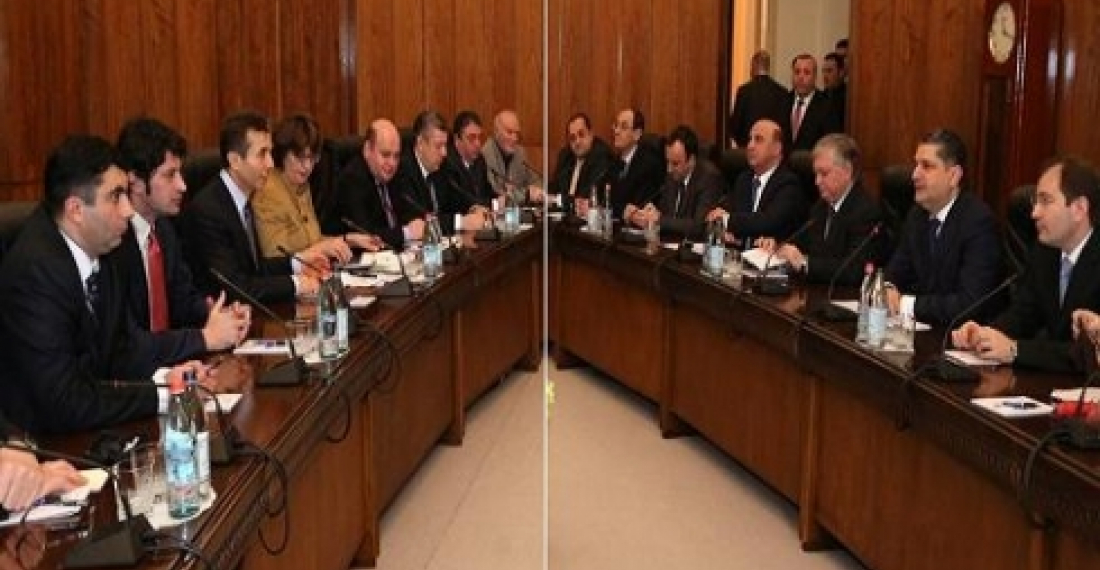Georgia's Prime Minister Bidhzina Ivanishvili is in Yerevan, on his first official visit to Armenia since taking office in October. He was received by Prime Minister Tigran Sargsyan and the two premiers already had one round of discussions. Ivanishvili will also meet with the President of Armenia, Serzh Sargsyan and with the Catholicos of the Armenian Apostolic Church Karekin I.
Commonspace.eu political editor said in a comment:
"Relations between Armenians and Georgians go back centuries, and the two nations share many common heritages, including a Christian faith, many common customs and a shared Soviet past. Yet the relationship has always been complex. Competition between Armenians and Georgians sometimes goes beyond being healthy.
Three factors have determined the relations between the newly independent states of Armenia and Georgia in the last twenty years: (1) The presence in Georgia of a large Armenian community, some in Tbilisi itself, and others compactly settled in the region of Samskhe Javakheti; (2) the very different relationship that the two countries have had with Russia, with Armenia being a close ally of Moscow, whilst Tbilisi fought a war with Russia in 2008; and (3) Armenia's continued dependance on Georgia for land communication with the rest of the world, given the blockade imposed on it by Turkey, and the continued state of war with Azerbaijan.
Different administrations in both countries have over the years taken a pragmatic approach to their bilateral relations, based on need and expedience. Both sides have closed one eye to the other's actions on more than one occasion in order to keep relations on track. At times relations plummeted but not for long. Until last year relations between Georgia's president Saakashvili and Armenia's President Serzh Sargsyan were hailed by the two sides as excellent.
This may have clouded perception as Georgia went through a difficult election campaign in 2012, leading up to a change of government in October. Saakashvili remains President, but power has moved to his opponents. The Armenians, like the Georgians, are not used to political co-habitation, and for a moment they blinked.
On the Georgian side there was also a moment of hesitation until the relationship could be once more calibrated.
It is hoped that the visit of Ivanishvili to Yerevan will consolidate the process. Georgia needs to maintain good relations with Armenia whilst not upsetting its other neighbour Azerbaijan. Both are important for Georgia, but in very different ways.
Armenia on its part needs Georgia more than ever if it is to avoid isolation.
There are many issues that the two sides need to discuss, and many problems to solve. The visit provides a good opportunity to do so. They must get this right, as a lot depends on keeping this relationship healthy - for both countries and for the region."
source: commonspace.eu
photo: The delegation led by the Georgian Prime Minister Bidhzina Ivanishvili in meetings with Armenian Ministers in Yerevan on 17 January 2013. (picture courtesy of the Bidhzina Ivanishvili facebook page.)







